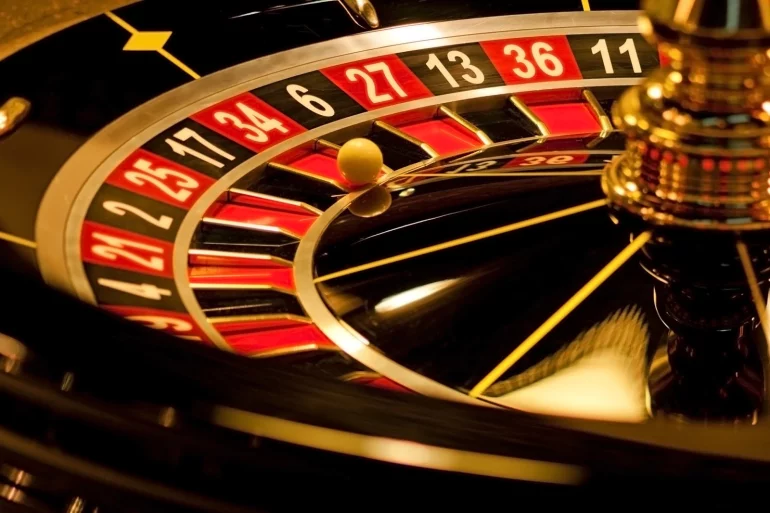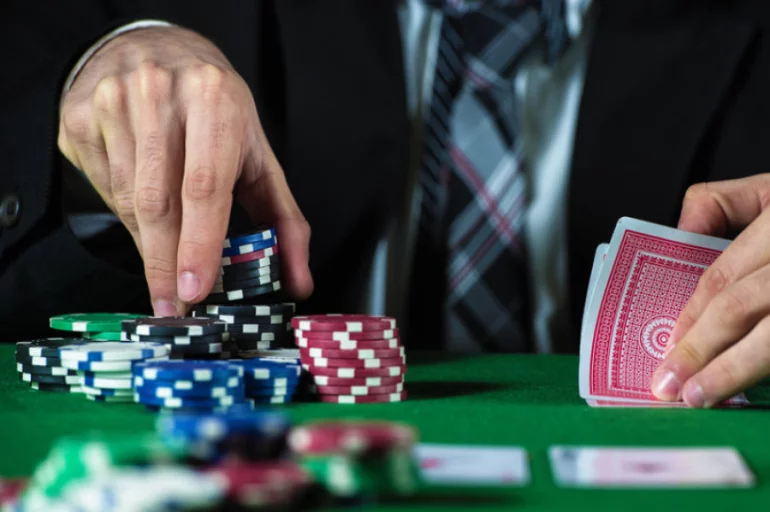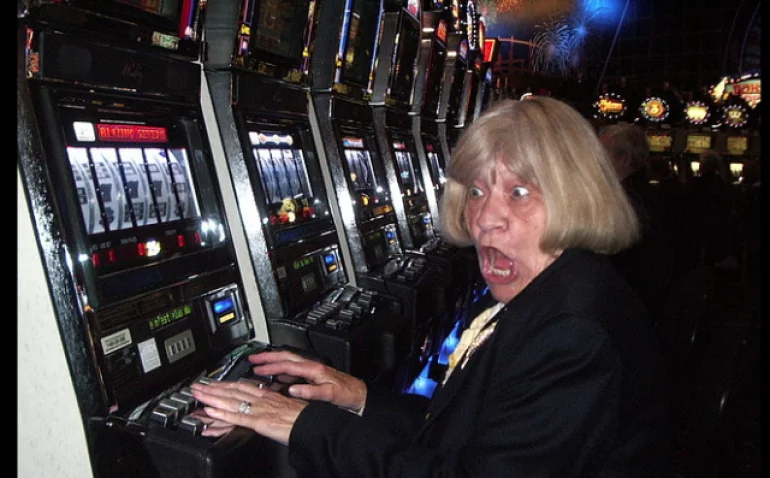_770.webp)
Every casino customer expects to beat the house. A small percentage of customers are primarily interested in the gameplay, but even they are happy when they are in the black after a gaming session. We can assure you that all games of chance are based on a gambler's desire to win.
Gamblers' Psychology
What mood is more favorable for gambling? Do you need to look to the future with optimism? Is the glass half-full or half-empty for casino customers? What should you do if your expectations haven't been realized?
Answers to all questions mentioned above can be found in our article.
Optimism Bias
This conditional term describes those who react less strongly to negative things than to positive situations. This phenomenon is prevalent among gamblers.
Perhaps you have noticed that huge payouts are indeed stuck in your memory. You want to tell others about them, and thoughts of them warm the cockles of your heart. On the other hand, you forget about considerable losses in a few days. This is one of the manifestations of optimism bias.
It is observed not only in the case of gambling. For example, those who often consume alcoholic beverages do not imagine themselves as sick people with liver failure, and heavy smokers do not realize they may die from lung cancer. Instead, they happily recall old rock musicians who have succeeded in reaching senility despite their alcohol abuse, smoking, and drug addiction.
In other words, almost all addicted people believe that possible problems will pass by.
Psychologists have found several signs of optimism bias.
Wishful Thinking
Wishful thinking is a phrase that describes the behavior of those who prefer dreams and wishes to reality. Such an attitude to life is typical for many gamblers. They try to optimistically perceive everything happening to suppress unpleasant thoughts and doubts concerning their deeds.
For example, sober-minded persons should consider all the consequences of staying in a casino. However, if you talk about this with addicted and overexcited customers, they will focus on the positive aspects of gambling in this establishment.

They can say that the pokie machine is about to start paying out winnings or some promotions will be triggered soon. The gambler may insist they are lucky at 3 p.m. or that yesterday's winnings have not yet been lost. You'd be surprised how many advantages can be found in hours-long gaming sessions.
That is why it is essential to select duration or money limits for a gaming session in advance and strictly adhere to your timetable. Exit a casino if you win or lose your money limit established in advance. Go home immediately when the allotted time is over.
Illusion of Control
Most customers of gambling houses believe that the situation is under control. They make their own decisions. No one forces them to place bets. Chips and money are lying in their pockets. They follow a particular strategy. All of these factors indicate that they act prudently and thoughtfully.
However, nothing of the kind! It is impossible to control the situation if the outcome of each spin depends on luck.
Moreover, the outcomes of individual rounds are not related to each other. Even in sports betting, the result depends on a player more than on casino games. That is why even the most experienced professional blackjack players can be in the red.
Power of Stereotypes
Common stereotypes can provoke optimism bias. If you see that black numbers have come ten times in a row while playing roulette, it is difficult to believe that the probability of appearing a red number in the next spin is the same as in any other spin.
This opinion is caused by common superstitious beliefs, superstitions, and personal observations that have not been scientifically proven.
Uneven Awareness
To be sure, we know about ourselves more than about the others. This fact stimulates us to make decisions based primarily on our own experience. If you have never faced real manifestations of problem gambling, you can believe this problem cannot threaten you. Moreover, we prefer to think that it does not exist at all.

This aspect is evident in many beginners who prefer sports betting. They can be well aware of one team's advantages, and this fact can give them a reason to stake on its victory. However, they do not find time to study an opponent attentively. In other words, they don't consider all possible factors that may affect the outcome, which contributes to the development of excessive optimism.
Mood
To sum up, we want to talk about some obvious things. When people are in a good mood, they see everything through rose-colored spectacles. It seems that everything is fine. To be sure, they firmly believe that luck will accompany them at a casino. We hope that you understand what this may lead to.
We do not say you should gamble in a gloomy mood. Yet, bear in mind that too pleasant an attitude can lead to controversial decisions.
Researches
A team of researchers headed by Jean-Claude Dreher from the Center de Neurosciences Cognitives studied several aspects of this field. They concluded that all addicted gamblers were looking at the world too optimistically. Exactly the optimism bias had a strong influence on their subjective perception and made them make inadequate decisions.
Excessive optimism made them believe in further success, even when they were spoiling their whole life because of gambling.
Psychological Medicine (May 2016) contains a detailed report describing the research and results of practical experiments.
What Should You Do?
It would be best not to become an incurable optimist in gambling. You should always be prepared for losses. Customers often lose significant amounts or small sums. However, only professional gamblers can be in the black in the long run. The house edge, optimism bias, wrong strategies, and other factors contribute to a player's bankroll constantly decreasing.

Do not allow excessive optimism to arise even after hitting the jackpot.
We have always said and want to emphasize again:
Treat gambling as entertainment but act as professionally as possible.
Read expert articles about game strategies, professional tactics, financial management, and the psychology of gambling on Casinoz. They will help you to achieve the best results.


















